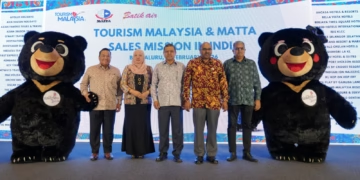In the ongoing efforts against COVID-19 pandemic, Defence Research and Development Organisation (DRDO) has been using scientific endeavours to develop products in an accelerated manner. The DRDO laboratories are working with industry partners for volume production.
Personnel Sanitisation Enclosure (PSE)
Vehicle Research Development Establishment (VRDE), Ahmednagar, a DRDO Laboratory has designed full body disinfection chamber called as PSE. This walk through enclosure is designed for personnel decontamination, one person at a time. This is a portable system equipped with sanitiser and soap dispenser. The decontamination is started using a foot pedal at the entry. On entering the chamber, electrically operated pump creates a disinfectant mist of hypo sodium chloride for disinfecting. The mist spray is calibrated for an operation of 25 seconds and stops automatically indicating completion of operation. As per procedure, personnel undergoing disinfection will need to keep their eyes closed while inside the chamber.
The system consists of roof mounted and bottom tanks with a total of 700 liters capacity. Approximately 650 personnel can pass through the chamber for disinfection until the refill is required.
The system has see-through glass panels on side walls for monitoring purpose and is fitted with lights for illumination during night time operations. A separate operator cabin is provided to monitor overall operations.
The system has been manufactured with the help of M/s D H Ltd, Ghaziabad, within a time span of four days. This system can be used for disinfection of personnel at the areas of controlled ingress and egress such as entry and exit to hospitals, malls, office buildings and critical installations.
Full Face Mask (FFM)
Research Centre Imarat (RCI), Hyderabad and Terminal Ballistics Research Laboratory (TBRL), Chandigarh, have developed face protection mask for health care professionals handling COVID-19 patients. Its light weight construction makes it convenient for comfortable wear for long duration. This design uses commonly available A4 size Over-Head Projection (OHP) film for face protection.
The holding frame is manufactured using Fused Deposition Modeling (3D printing). Polylactic Acid filament is used for 3D printing of the frame. This thermoplastic is derived from renewable resources such as corn starch or sugarcane and is biodegradable. The face mask will be mass produced using injection moulding technique for volume production.
One thousand face shields are being produced daily in TBRL and provided to Postgraduate Institute of Medical Education and Research (PGIMER), Chandigarh. Similarly 100 are produced at RCI and these have been handed over to Employees’ State Insurance Corporation (ESIC), Hyderabad. A demand of 10,000 shields has been received from PGIMER and ESIC Hospitals based on successful user trials.
